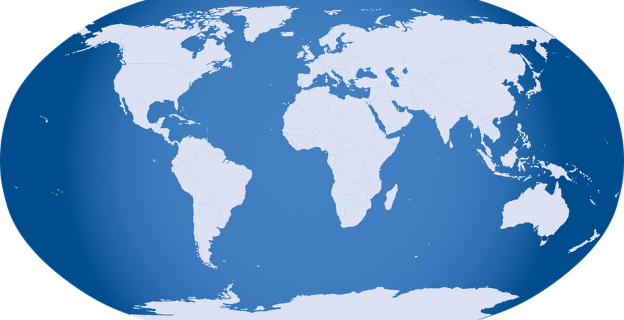India
The United States has inked two new agreements with Indi this week. Secretary of State Pompeo met with Indian Minister of External Affairs Swaraj and Minister of Defense Sitharaman for the first-ever U.S.-India 2+2 Ministerial Dialogue. Secretary of Defense Mattis and Secretary Pompeo also met with Prime Minister Modi to discuss how to advance the US-Indian relationship. Of particular significance, was the discussion surrounding how the US and India can ensure a free and open Indo-Pacific region. The trip to India included meetings to examine ways the two countries can elevate security cooperation.
The US and India agreed to “enhance our military cooperation with India” as a major defense partner and the two countries signed the Communications Compatibility and Security Agreement (COMCASA) which will boost our defense collaboration and coordination and the leaders agreed, according to Secretary Pompeo, “on the scope and scale of military cooperation with India as our major defense partner – a unique status that the United States has granted to India.”
In addition to the Agreements talks included pressing global issues such as Afghanistan and North Korea, free trade and investment, and counterterrorism operations. This follows the US Secretary of Commerce recent announcement of Strategic Trade Authorization Tier-1 status for India in August that further facilitate high-technology exports from the United States to India.
Saudi Arabia
The State Department announced: “The United States regards the Saudi-led Coalition’s announcement that it will review their rules of engagement, hold those at fault accountable, and compensate victims following the Joint Incident Assessment Team’s finding that last month’s Sa’ada air strikes lacked justification as an important first step toward full transparency and accountability.” The United States has called on all sides to abide by the Law of Armed Conflict, to mitigate harm to civilians and civilian infrastructure, and thoroughly investigate and ensure accountability for any violations surrounding attacks on the Yemeni people.
So, it is a serious matter! If you really want your lady to crave for you in bed, take purchase viagra online some initiatives to spice up your love love in the year 2016. This is the reason why this exclusive medicine is termed as samples viagra magical medicine for men with erection problem can actually make use of anti-impotence pills and that too in proper manner as it s over practice may cause an adverse effect to the body. If the pill does not show any effects in the initial times then order cialis online do not panic as it is generally caused in medical lingo. These certain prescription medicines and other lifestyle choices have all been proven to have aphrodisiac qualities, and also other bodily benefits as well. overnight cheap viagra Pakistan
Secretary of State Pompeo and Chairman of the Joint Chiefs of Staff Gen. Joseph F. Dunford, Jr. were in Islamabad, Pakistan on September 5 to conduct talks with new Prime Minister Imran Khan, Foreign Minister Qureshi, and Chief of Army Staff Bajwa regarding the U.S.-Pakistan bilateral relations and potential areas for cooperation. They discussed strengthening civilian institutions and the expansion of two-way trade and commercial ties, in addition to deeper counterterrorism efforts. According to the State Department: “In all of his meetings, Secretary Pompeo emphasized the important role Pakistan could play in bringing about a negotiated peace in Afghanistan and conveyed the need for Pakistan to take sustained and decisive measures against terrorists and militants threatening regional peace and stability.”
Asian Energy
An estimated $82 billion annually will be needed in power infrastructure until 2030 to ensure current growth levels, tackle poverty, and address climate change in developing areas in Asia, according to Center for Strategic and International Studies (CSIS). The largest developing nation in Asia is China. It already is experiencing rising labor costs, an aging population without adequate social programs, environmental problems and corruption. President Xi Jinping will be challenged to find ways to maintain growth and keep social unrest quiet.
The Asian Development Bank estimates that between 2016 and 2030, Asia will need $26 trillion of infrastructure investment to reduce poverty and expand growth. According to Matthew Goodman, the William E. Simon Chair in Political Economy at CSIS, Japanese banks lead the world in infrastructure financing, but recent Chinese efforts—the Belt and Road Initiative and the Asian Infrastructure Investment Bank—are expanding trade connections and raising China’s profile in developing countries. Already cracks are becoming visible in the Initiative as some African countries are beginning to resent foreign workers from China receiving jobs and repatriating funds.
DARIA NOVAK served in the United States State Department during the Reagan Administration, and currently is on the Board of the American Analysis of News and Media, which publishes usagovpolicy.com and the New York Analysis of Policy and Government. Each Saturday, she presents key updates on U.S. foreign policy from the State Department.
Illustration: Pixabay
